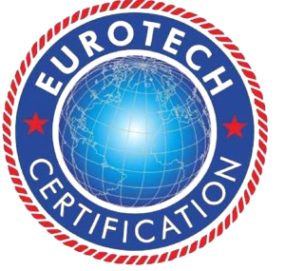ISO (International Organization for Standardization)
ISO (International Organization for Standardization) is a nonprofit organization and worldwide federation of national standards bodies. ISO develops and publishes standards to ensure the quality, safety and efficiency of products, services and systems on ranging from information technology to fluid dynamics and nuclear energy. Headquarter of ISO is in Geneva, Switzerland. The organization consists of 162 members that each one the sole representative for their home country.
ISO is founded at 1947 and up to date ISO has published more than 22.600 standards and related documents that can apply to all kinds of industries, such as manufacturing, healthcare, and accounting etc. ISO standards are a collection of best practices that promote product compatibility, sharing of solutions and know-how and identification of safety issues. The standards present an approach that has been agreed on by international experts, so ISO certification provides potential customers with proof of compliance and win their trust.
Types of standards: the 4 main categories
1) Product standards
These national, European and ISO standards record agreements relating to the characteristics of products so that the consumer is (generally) given better quality and safety guarantees. Those characteristics can also indicate the extent to which a product may be used in conjunction with other related products, systems and components: so-called interoperability.
Two examples: EN 50172:2004 – Emergency escape lighting systems
EN 71-1:2014+A1:2018 – Safety of toys
2) Service standards
These service standards assure organizations of a continuous ‘minimum’ quality in respect of a specific service. Service standards also establish rights and obligations for both the service-provider and the user of the services so that the responsibilities of each party are clear to everyone.
Two examples: ISO 20611:2018 – Adventure tourism
ISO/TS 20658:2017 – Medical laboratories
3) Process standards
Process standards refer to the conditions and requirements which apply to the production, storage, packaging and testing of products.
Two examples: EN 13432 – Requirements for packaging recoverable through composting and biodegradation
ISO/IEC/IEEE 29119 – Software testing
4) Management System standards
These standards help organizations to manage their activities in a broad sense. So while certain management standards relate to quality, the environment or sustainability, others describe the best way to carry out a specific task such as project management or outsourcing.
Examples: ISO 9001 – Quality management system
ISO 14001 – Environmental management system
ISO 22000 – Food Safety management system
ISO 27001 – Information security management system
Why do you need ISO Certification?
- Improved Processes : You can maintain standard protocol of quality which eventually helps in improving products and services.
- Customer satisfaction: Having this certification will eventually help in establishing trustworthiness and professional approach.
- Right decision making (based on evidences): Making decisions based on an analysis of the information and processes helps for the right decisions on product, process, service, quality.
- Meet the requirements specified by regulatory authorities and laws: Having this certification makes your company eligible to apply for government contracts, for international and national markets.
- Establishing credibility: Having this certification will automatically attract the attention of the customer and gain their trust. Thus it adds credibility to your marketing and advertising strategies.
- Saving on the cost: With standard management protocols specified by ISO, there will be a lesser probability of repair and other losses, thus helping you in saving the capital which can be effectively used for other tasks. Having error-free business operation methods, it becomes easier for you to become a more efficient organization.
- Empowered Employees: Making the employees more knowledgeable and aware about product, process, system requirements, they can perform their tasks more efficiently and without flaws.
- Improved Consistency: With ISO certification, it has become easier for organizations to take control of their business processes.
- Have a detailed report of the functioning of your organization: With ISO certification, your organization will implement documented and detailed process using business metrics. So detailed reports and traceability of product /service / processes can guarantee your quality. the certificate also focuses on creating lesser waste and optimal utilization of resources.
- Achieve international quality recognition: ISO is a globally recognized quality standard, and any organization that has this certification matches up to the international quality standards. The protocol of management, production remains the same globally. Hence, you can approach global clients.
